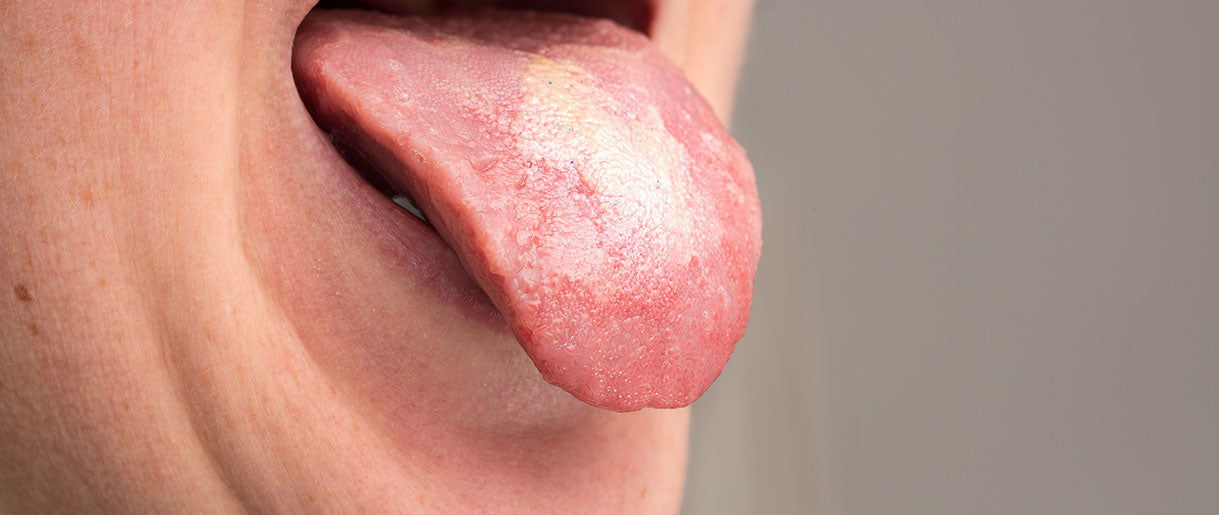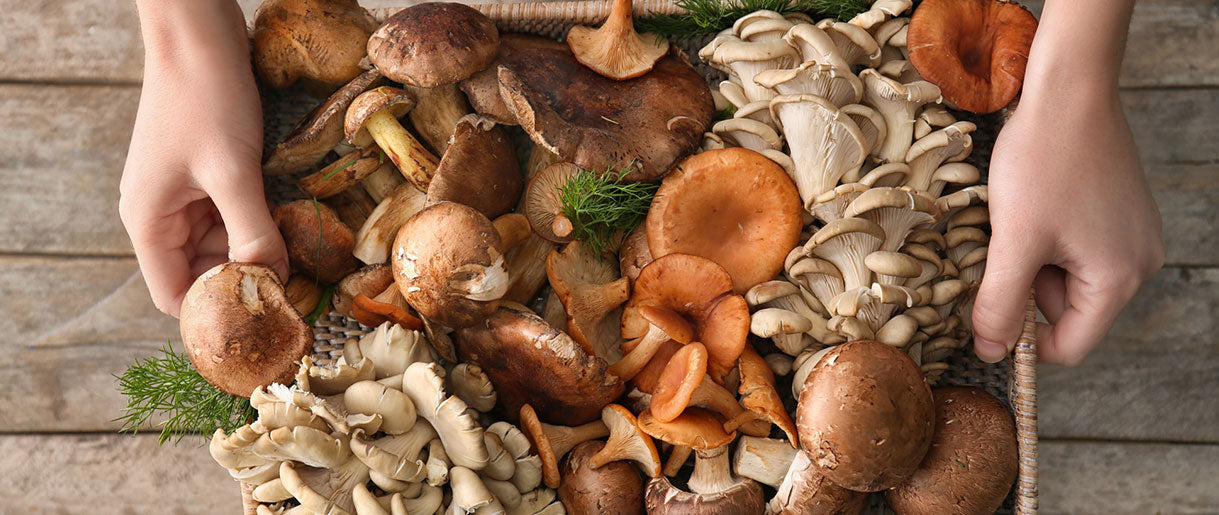Mushrooms, often considered a superfood, have been noted for their potential benefits in managing allergies. Certain types of mushrooms, such as Reishi, Shiitake, and Maitake, contain compounds like beta-glucans that can modulate the immune system and potentially alleviate allergy symptoms. They help by reducing the inflammatory response, a common problem in allergic reactions.
However, while incorporating mushrooms into a balanced diet can support general health, it's important to remember they aren't a standalone allergy treatment. Always consult with a healthcare professional before beginning any new health regimen. Additionally, it's crucial to ensure you're not allergic to the mushrooms themselves, as this could exacerbate symptoms.
In this article, we will dive deeper into the role of mushrooms in combating allergies. We will explore the science behind their potential benefits, the best types of mushrooms for allergy sufferers, and practical tips on incorporating them into your diet.
Unraveling Allergies: The Unwanted Immune Response

Allergies Defined
An allergy is a reaction of the immune system to substances that are generally harmless to most people. These substances, known as allergens, trigger an overactive immune system to respond in a way that can range from mild discomfort to a severe allergic reaction. An allergy can be considered an exaggerated defensive response where the immune system mistakenly identifies a harmless substance as a threat and launches an attack.
Common Triggers of Allergic Responses
There are a myriad of allergens that can trigger an allergic reaction. Common ones include dust mites, pet dander, pollen, certain foods, insect stings, and certain medications. Seasonal allergies, known as hay fever or allergic rhinitis, are typically triggered by outdoor allergens like pollen.
Our bodies release histamine in response to these allergens, which initiates an inflammatory and allergic response. This overreaction often leads to the uncomfortable symptoms we associate with allergies.
Symptoms and Impacts of Allergies on Health and Lifestyle
Symptoms of an allergic reaction can vary significantly in severity and affect various parts of the body. In some cases, these symptoms may vary depending on what's causing the allergy—for example, food allergy symptoms may differ from allergies caused by a different allergen.
Mild symptoms may include skin rash, itching, sneezing, runny nose, watery eyes, and an upset stomach. In more severe cases, an allergic reaction can cause breathing difficulties, a drop in blood pressure, dizziness, or loss of consciousness.
Over time, allergies can significantly impact an individual's quality of life, leading to sleep disturbances, decreased productivity at work or school, and an overall reduction in well-being.
Chronic allergies, such as allergic rhinitis, can also cause long-term inflammation, leading to increased production of inflammatory cytokines, further exacerbating allergic responses, and other health complications.
The Mushroom Kingdom: A Journey into Fungi's Nutritional and Medicinal Bounty

Mushrooms: Nature's Versatile Fungi
Mushrooms, belonging to the fungi kingdom, are fascinating organisms in various shapes, sizes, and colors. Unlike plants, mushrooms' life cycles do not require sunlight. They can thrive in diverse environments, from nutrient-rich soil to logs or even in areas of decay.
While some mushrooms are cultivated for culinary purposes, others are revered for their medicinal properties. "Medicinal mushrooms" refers to various mushroom species that possess health-promoting compounds.
A Tour Through the Variety of Mushrooms
There are countless types of mushrooms, each boasting unique characteristics. For this article, our focus will be on medicinal mushrooms, specifically the Reishi mushroom.
For their perceived health benefits, Reishi mushrooms have been used for centuries in traditional medicine, particularly in Asia. Today, Reishi mushrooms and other medicinal mushrooms like Shiitake, Turkey Tail, and Cordyceps are becoming increasingly popular in Western wellness practices.
Nutritional and Medicinal Wealth of Mushrooms
Mushrooms, including Reishi mushrooms, are rich in dietary fiber, vitamins, and minerals source. They contain many antioxidants and are known for their anti-inflammatory properties, making them an excellent dietary addition for managing chronic inflammation.
Medicinal mushrooms also contain unique compounds such as polysaccharides, triterpenoids, and beta-glucans, contributing to their health benefits. For instance, Reishi mushrooms have many benefits ranging from blood sugar management—this makes it one of the best mushrooms for diabetes.
Specifically, the beta-glucans found in Reishi mushrooms can help modulate the immune system, including the behavior of mast cells, which play a crucial role in allergic responses. By doing so, they can potentially alleviate symptoms associated with overactive immune responses, such as allergies.
Other mushrooms are also beneficial—for example, Cordyceps supports lung health, improves the respiratory system, and exhibits anti-histamine activity, which can help inhibit allergic reactions.
The Power of Fungi: Mushrooms in Allergy Management

How Mushrooms Can Alleviate Allergies
Mushrooms, particularly medicinal mushrooms like Reishi, have properties that may aid in allergy management. Several underlying factors contribute to the allergic responses we experience, including overactive mast cells and high histamine levels. Medicinal mushrooms can modulate these responses, potentially reducing the severity of common symptoms like a runny nose or itchy eyes during allergy season.
Specifically, mushrooms have compounds that can suppress inflammatory and allergic responses. For instance, Reishi mushrooms enhance liver function, which is crucial for detoxifying leftover histamine, a primary culprit behind allergic reactions. The improved insulin sensitivity that these mushrooms provide could also contribute to this process, as there is a link between blood sugar levels and inflammation.
Scientific Insights: The Evidence Behind Mushrooms and Allergies
Several scientific studies have delved into the role of mushrooms, particularly Reishi, in allergy management. One study(1) published in the "International Immunopharmacology" journal found that Reishi mushrooms could inhibit certain allergic reactions, including those that lead to anaphylactic shock, a life-threatening allergic reaction.
Furthermore, a study(2) published in the "Journal of Ethnopharmacology" demonstrated that Reishi mushrooms could relieve allergy symptoms by inhibiting the release of histamine from mast cells, reducing the severity of allergic reactions.
Navigating the Fungi Forest: Choosing the Best Mushrooms for Allergies

Several types of mushrooms have been found to help with allergies potentially, thanks to their ability to address some of the underlying factors involved in allergic responses. While there are numerous beneficial mushrooms, we'll focus on the most recognized ones for allergy relief: Reishi, Shiitake, and Maitake.
Reishi Mushrooms
Known as the "Mushroom of Immortality" in traditional Chinese medicine, Reishi mushrooms contain triterpenes, a type of molecule that has been found to help reduce allergic reactions. They are also known to(3) modulate the immune system and have anti-inflammatory properties, making them a beneficial addition for allergy sufferers.
Shiitake Mushrooms
Shiitake mushrooms are rich in various nutrients and contain a substance known as lentinan, which can boost the immune system and potentially help prevent and relieve allergies. They also have(4) anti-inflammatory properties, which can help reduce the severity of allergic reactions.
Maitake Mushrooms
Maitake mushrooms are renowned(5) for their immune-boosting properties, which can be beneficial for managing allergies. They contain beta-glucans that help modulate the immune response, potentially easing allergic symptoms.
The Fungi in Your Kitchen: Incorporating Mushrooms into Your Diet for Allergy Relief

The Right Way to Consume Mushrooms for Allergy Relief
Mushrooms can be consumed in various ways, and your choice will likely depend on personal preference. Some people enjoy the distinct flavor that mushrooms add to meals, while others prefer taking mushroom supplements. Others prefer mushroom powders for smoothies and preparing mushroom tea.
For allergy relief, consider starting with a small amount and gradually increasing your intake to monitor how your body responds. It's important to cook mushrooms thoroughly as some varieties can contain compounds that are hard to digest when raw. Cooking not only makes mushrooms easier to digest but can also enhance the bioavailability of some beneficial compounds.
Delightful Recipes and Meal Plans with Mushrooms
To help you incorporate these allergy-friendly mushrooms into your diet, here are a few recipe suggestions:
Reishi Mushroom Soup
This is a comforting and immune-boosting recipe. Simmer sliced Reishi mushrooms with vegetables of your choice, add some herbs and spices, and you have a nutritious soup.
Stir-fried Shiitake Mushrooms
Shiitake mushrooms add a flavorful touch to stir-fries. Combine them with your favorite vegetables, protein sources, and soy sauce for a quick and easy meal.
Maitake Mushroom Salad
Add grilled Maitake mushrooms to your salad to boost flavor and health benefits. Maitake pairs nicely with other veggies, completing your snack with numerous nutrients.
You could also create a weekly meal plan incorporating these mushrooms into different meals. Remember, variety is the spice of life, so don't be afraid to experiment with different recipes and flavors.
Precautions and Considerations with Mushrooms
While mushrooms can potentially provide allergy relief, it's crucial to be aware of some considerations. Some people might have a sensitivity or allergy to certain types of mushrooms. If you experience any adverse reactions after consuming mushrooms, stop use immediately and consult with a healthcare professional.
Additionally, while medicinal mushrooms have numerous potential health benefits, they shouldn't be used as a replacement for traditional allergy treatments unless under the advice of a healthcare professional. If you're pregnant, nursing, or have a medical condition, discussing with your doctor before starting any new dietary regimen or supplement is especially important.
Beyond Allergy Relief: The Multifaceted Benefits of Mushrooms

Unleashing the Power of Mushrooms: Health Benefits Beyond Allergies
Mushrooms are packed with a wealth of benefits that extend beyond allergy relief. They are rich in essential nutrients, including vitamins B and D, selenium, and fiber. Moreover, their high antioxidant content can help protect against cellular damage and support overall health.
Certain medicinal mushrooms, such as Reishi, have been associated with improved heart health, potentially reducing the risk of heart disease by impacting factors like blood pressure and cholesterol levels. Other varieties, like Lion's Mane, have been studied for their potential to support brain health. Lion's mane boosts memory thanks to its bioactive compounds that could promote the growth of brain cells.
Moreover, mushrooms can facilitate weight loss and management due to their high fiber content and low-calorie count. They provide a satisfying, hearty texture to meals without adding extra calories, supporting a balanced and healthy diet.
The Role of Balanced Diet and Lifestyle in Managing Allergies
While mushrooms can provide allergy relief and other health benefits, it's important to remember that they are just one part of a broader health and wellness strategy. A balanced diet, filled with various nutrient-rich foods, is crucial for overall well-being and allergy management.
Allergies are often a sign of an overreactive immune system. Therefore, lifestyle factors that support immune health can be beneficial. Regular physical activity, sufficient sleep, stress management techniques, and avoiding exposure to allergens, when possible, are all essential components of a holistic approach to managing allergies.
FAQs About Mushrooms for Allergies
Can People With A Mushroom Allergy Still Benefit From Other Properties Of Mushrooms?
If someone has a confirmed allergy to mushrooms, they should avoid all types, including medicinal ones. An allergic reaction can result in symptoms like skin rashes, digestive issues, respiratory problems, or in severe cases, anaphylaxis, which is a life-threatening condition.
Despite the potential health benefits of medicinal mushrooms, these would be outweighed by the risk of a severe allergic reaction in individuals allergic to mushrooms. It's always important to prioritize safety and consult a healthcare professional before trying new treatments or dietary changes, primarily if known food allergies exist.
Can Children Consume Medicinal Mushrooms For Allergy Relief?
Generally, it's recommended to consult a healthcare professional before giving children any supplements, including those derived from medicinal mushrooms. While mushrooms can be a part of a child's balanced diet, the concentrated forms found in supplements may not be appropriate or safe for all ages.
Moreover, children's immune systems are still developing, and what works for adults may not always be suitable for children. A healthcare professional can provide the best advice based on the child's age, overall health, and specific needs.
How Long Does It Take To See Improvements In Allergy Symptoms After Consuming Medicinal Mushrooms?
The time it takes to see improvements in allergy symptoms after starting a regimen with medicinal mushrooms can vary widely depending on individual factors. These factors can include the severity of the allergies, the type and amount of mushroom consumed, and individual differences in metabolism and immune response.
Some people may notice a difference in a few weeks, while others may take several months to observe changes. It's important to note that mushrooms should be part of a holistic approach to managing allergies, including a balanced diet, regular exercise, and appropriate medical treatment.
Can I Take Mushroom Supplements Along With My Regular Allergy Medication?
While medicinal mushrooms are generally considered safe for most people, they can interact with certain medications, including allergy medications. These interactions can alter the effectiveness of the medication or lead to unexpected side effects.
Therefore, it's crucial to consult a healthcare provider before combining mushroom supplements with your regular allergy medication or any other prescribed medications. They can provide guidance based on your specific health situation and ensure the combination of treatments is safe and effective.
Key Takeaways
Allergies are an overactive immune system response to harmless substances, resulting in uncomfortable and sometimes severe symptoms. Medicinal mushrooms such as Reishi, Shiitake, and Maitake have shown promise in potentially managing these symptoms thanks to their immunomodulatory, anti-inflammatory, and anti-histamine properties.
Beyond their potential allergy-relief benefits, mushrooms can also contribute to overall well-being, offering numerous health benefits from improved heart health to support in weight management.
However, integrating mushrooms into your diet requires care. It should be done in consultation with a healthcare professional, especially for individuals with mushroom allergies, pregnant or nursing women, and those on prescribed medications.
Indeed, while mushrooms aren't a panacea, they are a natural resource that can potentially enhance our well-being and offer some relief to those grappling with allergies. Everyone is unique, and what works for one may not work for all. It's all about finding what works best for you and fitting it into a balanced diet and lifestyle.
So, why not take a step into the fungi forest? Explore and experiment with mushrooms in your diet, or consider mushroom supplements, always prioritizing your health and safety and under the guidance of a healthcare professional.
Are you ready to try mushrooms for allergy relief? Or have you already tried them? We would love to hear from you. Leave a comment below to share your experiences, thoughts, or any questions about mushrooms and allergies. Let's continue this conversation and support one another on our paths to better health.
References
- Suppression of inflammatory and allergic responses by pharmacologically potent fungus Ganoderma lucidum, (1)https://pubmed.ncbi.nlm.nih.gov/24948193/
- Inonotus obliquus attenuates histamine-induced microvascular inflammation, (2)https://www.ncbi.nlm.nih.gov/pmc/articles/PMC6706056/
- Immunomodulating Effect of Ganoderma (Lingzhi) and Possible Mechanism, (3)https://pubmed.ncbi.nlm.nih.gov/31777013/
- Antioxidant and Anti-Inflammatory Potential of Shiitake Culinary-Medicinal Mushroom, Lentinus edodes (Agaricomycetes), Sporophores from Various Culture Conditions, (4)https://pubmed.ncbi.nlm.nih.gov/32865895/
- Immune-enhancing effects of Maitake (Grifola frondosa) and Shiitake (Lentinula edodes) extracts, (5)https://www.ncbi.nlm.nih.gov/pmc/articles/PMC4202470/










Let Us Know Your Comments